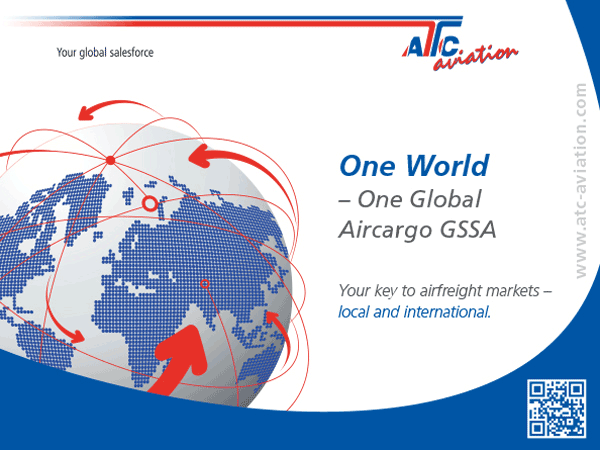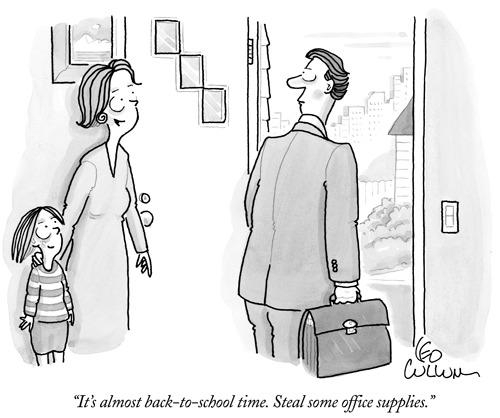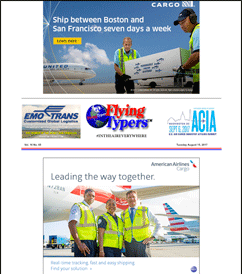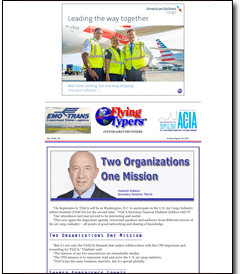
 |
 |
 #INTHEAIREVERYWHERE |
| Vol. 16 No. 68 | Thursday
August 24, 2017 |
It has been just over a month since the ‘game-changing’ Goods and Services Tax—the new centralized tax on goods and services that has eliminated the numerous different rates applied by various states across the country—launched in India. Taking A Second Look While the ‘One
Nation, One Tax’ received the initial welcome (although IATA
and quite a few freight forwarders wanted more clarity about some
sections of the tax) it appears now that the government will have
to strategize fixing the anomalies. Business in Leaps & Bounds “At a time when the domestic civil aviation industry anticipates that India will be among the tenth largest international freight market by 2018, with domestic Indian air cargo increasing by 7.3 percent as per current estimates over the 2016 rate, subjecting international freight at 18 percent GST is totally unfair as it will stifle the growth of air cargo,” the Chamber said. It went on to ask: “Why would the government of India want Indian exporters to pay an extra 18 percent GST on freight and make our goods non-competitive in the international market?” Deepening Paperwork Jungle
Impacts Countrywide Others who have been hit hard by the introduction of the GST are members of the Indian diaspora, especially in the Middle East. Before GST, these Indians (a very large percentage are low-paid, blue-collar workers) could send up to $320 worth of goods tax-free to India. After GST, goods worth only $35 can be sent tax-free. As a result, the first few weeks after GST saw huge loads stuck at Indian airports for lack of clearance. Stuck In Transit The Dubai-based Federation
of Indian Cargo Agents (Middle East) was quoted saying that blue-collar
workers had been using the door-to-door cargo services for sending
goods home as gift items. With the 41 percent revised tariff, 300
tonnes were stuck at Delhi, 100 tonnes at Mumbai, and another 100
at Bengaluru. |
 |
It feels as though
major international developments are happening faster and faster these
days, with tremendous potential to impact global logistics. To stay
ahead of the game in this unprecedented time, we must ask ourselves:
how will these global politics affect the airline industry? Changing Approach To Trade After decades of promoting
globalization and free trade, American policy has shifted dramatically,
seeking to put an end to “unfair trade,” promote the domestic
market, and end the past “appeasement policy” to international
treats. Business Adjusts Business is already
adjusting to the new environment, attempting to predict the impact
of policy changes on their business models. String Employment The July 2017 job
report from the Department of Labor indicated higher than expected
employment growth along with increases in wages, indicating that the
labor market is the strongest it’s been since the financial
crisis. Readies Tax Reductions Big Jump 2018 Corporate tax reduction,
a priority for the Trump administration, could add further stimulus
to the economy. The Challenge To Airlines Though the growth
outlook is very positive for U.S. airlines, the current environment
is not without its challenges. Air Cargo Meet The Future The U.S. non-integrator
cargo fleet has an additional problem. Uncertain Trump Policy Another airline concern
is the uncertainty over the Trump administration’s policy on
trade. Euro Gains Ground These developments are taking place in a climate of uncertainty around currency values, and specifically the prospect of a strengthening U.S. dollar.The Euro has steadily gained ground on the dollar since the beginning of April 2017 and represents about a 14 percent rise from the multi-year low seen at the end of December 2016. All this points towards rising confidence in the Eurozone and weakening expectations of positive economic and monetary stimulus action in the U.S. With the strong numbers we’re seeing in the U.S. economy, it remains to be seen if this is a long-term trend, or if the tide will turn in currency markets. As with all these other developments, airlines will need to weigh the risks and plan for every contingency. Bill Boesch
To Read Part 1 of This Series, Click Here |
|
Got to hand it to you . . . Right Honorable
Vice President of Nepal Mr. Nanda Bahadur Pun says thanks to Qatar Airways
Country Manager Nepal Mr. Jayaprakash Nair (right) as Nepal Freight Forwarders
Association recognized Qatar Airways Cargo as top export tonnage airline
serving the country for 2016. |
Why
Attend FIATA World Congress 2017?  October 4-8, 2017 For More Info. Click here To Register Click here |
|
Beyond The Obvious ““Suppliers
can only respond effectively to changes and deal with cost constraints
if they are supported by the supply chain and the transportation products
deployed therein,” Daniel wrote. How To Work Trade & Customs Daniel’s
dissertation showed how South Africa’s customs legislation and
the country’s trade, development, and cooperation agreement
with Europe could bring about significant cost and liquidity improvements.
Supply Chains Are The Real Competitors “Every
supply chain is driven by what an organization intends to achieve
in the marketplace. Thinking About The Shipper “Retailers
are continually faced with both market- and cost-related pressure
in their pursuit for competitive advantage.
Giving
Forwarding Fresh Perspective |
 |
If
You Missed Any Of The Previous 3 Issues Of FlyingTypers Access complete issue by clicking on issue icon or Access specific articles by clicking on article title |
||
 Vol.
16 No. 65 Vol.
16 No. 65ATC-Always Takes Care Chuckles For August 15, 2017 SWISS Streamlines Americas Air Berlin Goes Bust Euroshippers Overview Summer 2017 |
 Vol.
16 No. 66 Vol.
16 No. 66Two Organizations One Mission Chuckles For August 18, 2017 Famous Last Words Air Canada Magic India |
|
Publisher-Geoffrey
Arend • Managing Editor-Flossie Arend Film Editor-Ralph Arend • Special Assignments-Sabiha Arend, Emily Arend • Advertising Sales-Judy Miller |
|